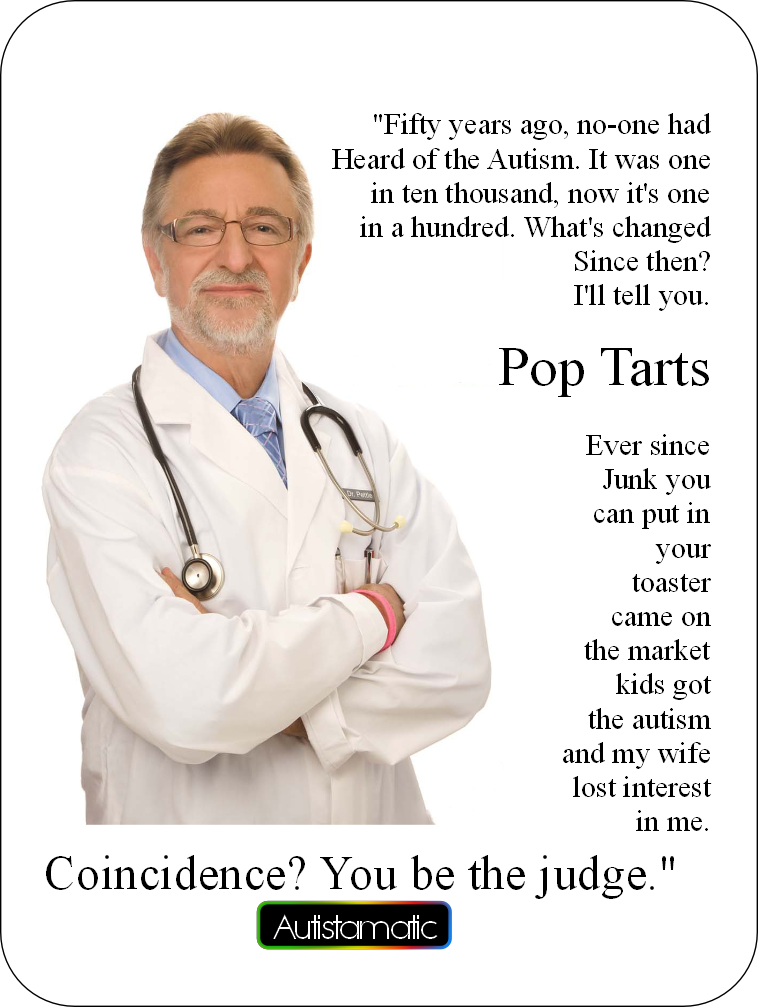Asperger's Syndrome and the Autistic Spectrum were only incorporated into the DSM IV in 1994 and the ICD 10 in 1996. Before then diagnoses were extremely rare because a diagnosis of "autism" was generally regarded to refer to Kanner or "classic autism" - what we would now consider to be ASD 3 (or
severe autism as the anti-vaxxers and Jenny McCarthy like to call it).
That means there's only been 25 years in which to formally diagnose
all of us with Asperger's, HFA, ASD 1 or whatever the current diagnostic label is at the time. There are people who were diagnosed in the 90s who may not even be diagnosed autistic now, and others who were not diagnosed who would meet the current criteria.
All these idiots who go on about an "autism epidemic" because "there weren't any around when I was young...
I was born in 1970. Even after my first diagnosis in the 80s (quote: "Autism {consistent with Asperger Syndrome}" because AS was a theory not yet in the ICD at that point) nobody had heard of it.
The first time I ever discussed my AS with anyone I knew was in 1999 because a few people had heard of it by then, but not many. When I sought clarification of my childhood diagnosis in 2003, finding a practitioner to do so was a chore even then.
The phenomenon has nothing to do with there being more ASD people out there, there's not been long enough to catch up with the backlog of undiagnosed people from the decades before. Look at
@Pats , diagnosed at 59. Only yesterday I was talking to people diagnosed at 52, 64 and 69. They were there in the 70s when I was growing up (along with many of our politicians, parents and lobbyists) but nobody knew. All those people found out in the last few years.
View attachment 51160

